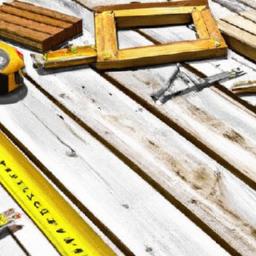In a world that often feels dominated by rapid technological advancements and disposable conveniences, the art of repairing and maintaining our everyday belongings can seem like a fading relic of the past. Yet, within the simple act of fixing a leaky faucet, patching a torn seam, or troubleshooting a stubborn appliance lies a profound empowerment that connects us to a time when self-sufficiency was not just a skill but a lifestyle. “Mastering the Basics: Essential Repair Skills for Everyday Life” invites you to rediscover these invaluable competencies, guiding you through practical techniques and essential knowledge that will not only save you money but also cultivate a deeper appreciation for the items you rely on daily. Whether you are a novice looking to embark on your repair journey or someone seeking to brush up on foundational skills, this article serves as your complete roadmap to becoming the capable fixer-upper of your own home. Join us as we dive into the world of repairs,transforming minor mishaps into triumphs,one skill at a time.
Foundational Repairs for the Home: tools and Techniques Every DIYer Should Know
When tackling foundational repairs around the home,having the right tools and understanding basic techniques can make all the difference in achieving a prosperous outcome. Start with a well-stocked toolbox that includes essential items such as:
- Hammer - For driving nails into wood or pulling them out.
- screwdriver set – A variety of both flathead and Phillips head.
- Level - Ensures that surfaces are even, especially crucial for installing shelves.
- Tape measure – Necessary for accurate measurements during any repair or installation.
- Utility knife – Ideal for cutting through drywall or stripping wires.
Understanding the techniques associated with these tools can transform a daunting task into a manageable one. As an example, learning how to properly apply joint compound can seamlessly patch drywall imperfections, while mastering the use of a stud finder can help you locate the necessary support for heavy fixtures. Always remember to measure twice and cut once, as precision is key in avoid costly mistakes.Here’s a quick reference table for foundational repair tasks and the recommended tools:
| Repair Task | recommended Tools |
|---|---|
| Fixing Holes in Drywall | Joint compound, putty knife, sandpaper |
| Fixing Leaky Faucets | Adjustable wrench, screwdrivers, plumber’s putty |
| Correcting Uneven Floors | Level, shim, crowbar |
Equipped with the right tools and techniques, you’ll find that many foundational repairs are well within your grasp, empowering you to enhance the safety and comfort of your living space.

Cultivating Confidence: Step-by-Step Guidance for Everyday Fixes and Maintenance
Building confidence in repairing everyday items starts with mastering the basics and engaging in regular practice. Whether you’re fixing a leaky faucet or patching a wall, having a structured approach can simplify tasks and boost your skills remarkably. Here are some foundational practices to get you started:
- Gather Your Tools: Invest in a basic toolkit with essentials like screwdrivers, pliers, and a hammer.
- Learn Basic techniques: familiarize yourself with common repair techniques, such as patching drywall and fixing electrical outlets.
- Start Small: Identify small repair jobs around the house to practice your skills-leaky faucets or squeaky doors are great options.
- Document Your Progress: Keep a notebook to track your repairs and note what worked or didn’t for future reference.
Additionally, consider tackling projects using a systematic approach. Here’s a handy table to outline potential repair projects along with the required tools:
| Repair Project | tools Needed |
|---|---|
| Fix a leaky Faucet | Wrench, screwdrivers, plumber’s tape |
| Patch a Wall | Putty knife, spackle, sandpaper |
| Change a Light Fixture | Screwdriver, wire stripper, safety gloves |
| Repair a Squeaky Door | Screwdriver, lubricant |
By following these steps and utilizing the provided resources, you’ll find that each successful fix enhances your confidence, helping you master everyday repairs with ease.
Insights and Conclusions
In a world that thrives on innovation and convenience, mastering the basics of repair skills remains an invaluable asset. As we navigate the complexities of everyday life, the ability to mend, fix, and create not only empowers us but also instills a profound sense of independence. Whether it’s patching a leaky faucet, sewing a torn shirt, or tuning up a bicycle, these basic skills can save both time and money while fostering a greater appreciation for our possessions.As you embark on this journey of learning and honing your repair abilities, remember that every small step counts. Embrace mistakes as opportunities for growth and approach each task with curiosity and patience. With practice, you’ll find that the confidence gained in repairing everyday items spills over into other areas of your life, igniting a spirit of resourcefulness and resilience.
So gather your tools, roll up your sleeves, and dive into the endless world of possibility that awaits. By mastering these essential repair skills, you’re not just fixing items – you’re building a more sustainable, self-sufficient, and fulfilling life. The art of repair is yours to explore; let it be the creative outlet that enriches your everyday experiences.










